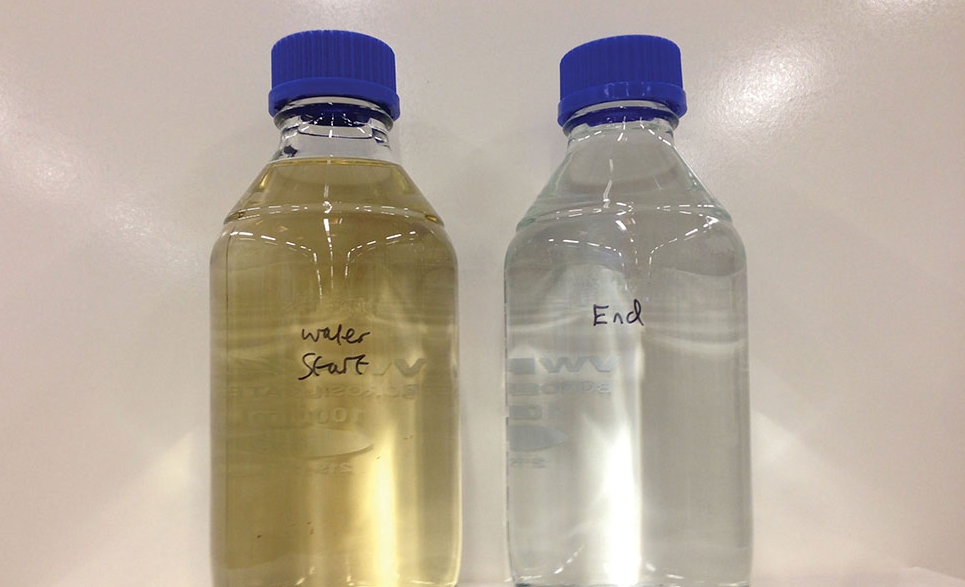- First major drinking water pilot for Arvia’s Nyex treatment system
- Trials assess effectiveness on hard-to-treat organics in raw water
- Tertiary treatment combines oxidation and adsorption to eliminate wastefirst long-term trial of Arvia’s Nyex treatment system on drinking water at a specially established pilot plant in West Lothian. The trial, which will run separately to the existing water treatment works at Pateshill, will assess the effectiveness of the system in removing organic material from raw water.
Nyex is a tertiary treatment system which combines adsorption with oxidation in a process that has many potential applications in water and wastewater processing. In municipal water applications, the main advantage of Arvia’s Nyex over granular activated carbon (GAC) filters is the elimination of waste – cutting the cost of having to dispose of waste solids to landfill.
The Scottish Water trial is focused on establishing whether Nyex could have an application on hard-to-treat water with a high content of organic material, due to the impact this can have on drinking water treatment. Bench trials have shown the Arvia system could remove 68 per cent of organic material from water, with the new pilot set to test the treatment on a larger scale to see if these results can be replicated and sustained.
Arvia project manager Akmez Nabeerasool said, “We are delighted to be taking this pilot project to a scaled-up level, which is the first long-term drinking water application for Nyex since approval by the Drinking Water Inspectorate (DWI). The pilot will assess the effectiveness on a range of flow and current parameters and locate the technology at different positions in the treatment train, including before and after pre-treatment.”
Allan Mason, senior project manager for business excellence at Scottish Water, said, “Research and innovation is key to Scottish Water being able to improve its water and wastewater services and ensure we are operating as efficiently as possible, even in the most remote of our communities. The bench trials of the Arvia system produced some excellent results on a difficult-to-treat raw water and I am very excited to see if we can replicate and sustain performance on a larger scale.
“If it performs well during this pilot, it could potentially offer us another method for treating drinking water in an efficient and cost-effective manner which continues to meet the high standards of service we aim to provide to our customers.”
How does Nyex work?
Arvia’s Nyex treatment system combines the advantages of adsorption and electrochemical regeneration within a single unit to treat organics in water. Key to this innovative process is an alternative approach to adsorption.
Conventionally high capacity adsorbents with high porosities and surface areas, such as activated carbons, are used. These technologies are very effective, but require complex and costly regeneration.
Nyex uses a patent protected adsorbent media which is a non-porous and highly conducting, enabling it to act as both the adsorbent and a 3D electrode. Its non-porous nature means kinetic activity during adsorption and regeneration is extremely fast and can be repeated many times in situ.
This net benefit of this increased motion greatly outweighs the relatively lower adsorptive capacity of the media. This means the Nyex process requires a significantly lower mass of adsorbent than those using activated carbon, reducing site footprint and total capital expenditure.
The high conductivity of the adsorbent means that it operates at low cell voltage to create a chemical-free, waste-free, cost and energy efficient process. Contaminant organics are adsorbed onto the media surface and a low voltage electric current proportional to the organic concentration is passed through.
Adsorbed organics are oxidised and the surface of the media is regenerated for further adsorption without interruption or replacement. The treated water flows from the foot of the system where it can either be reused or safely discharged.





